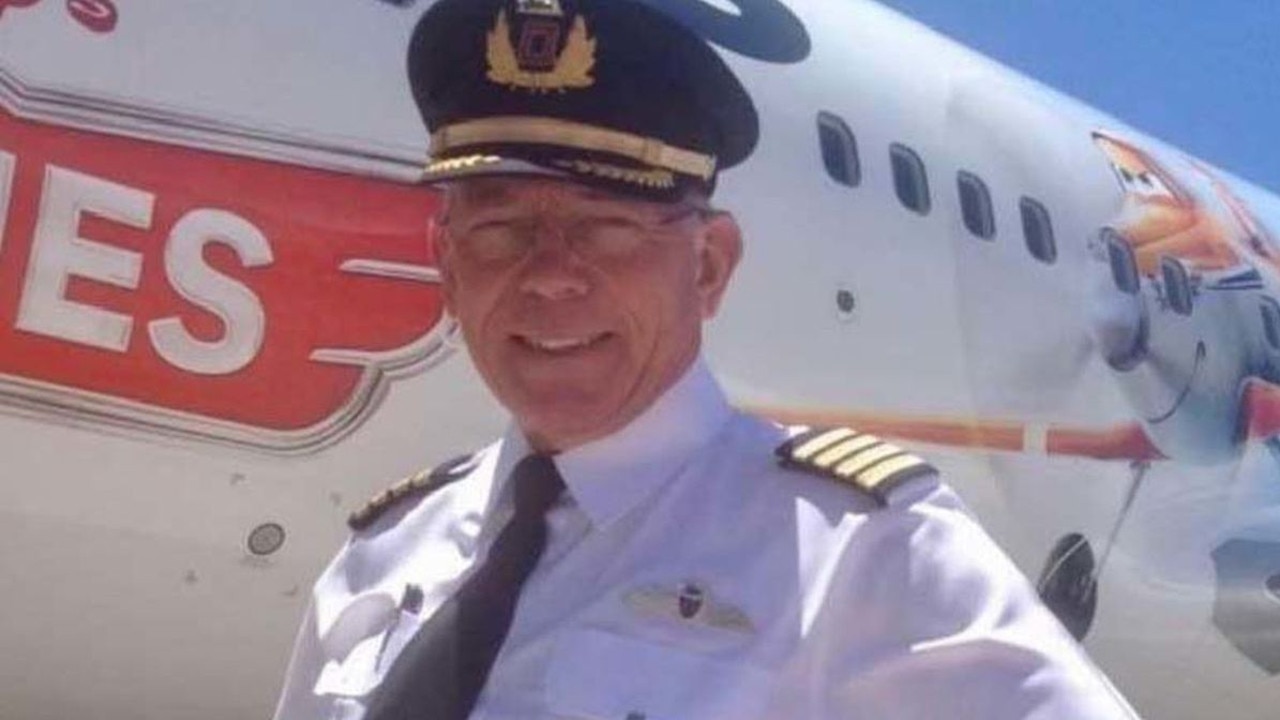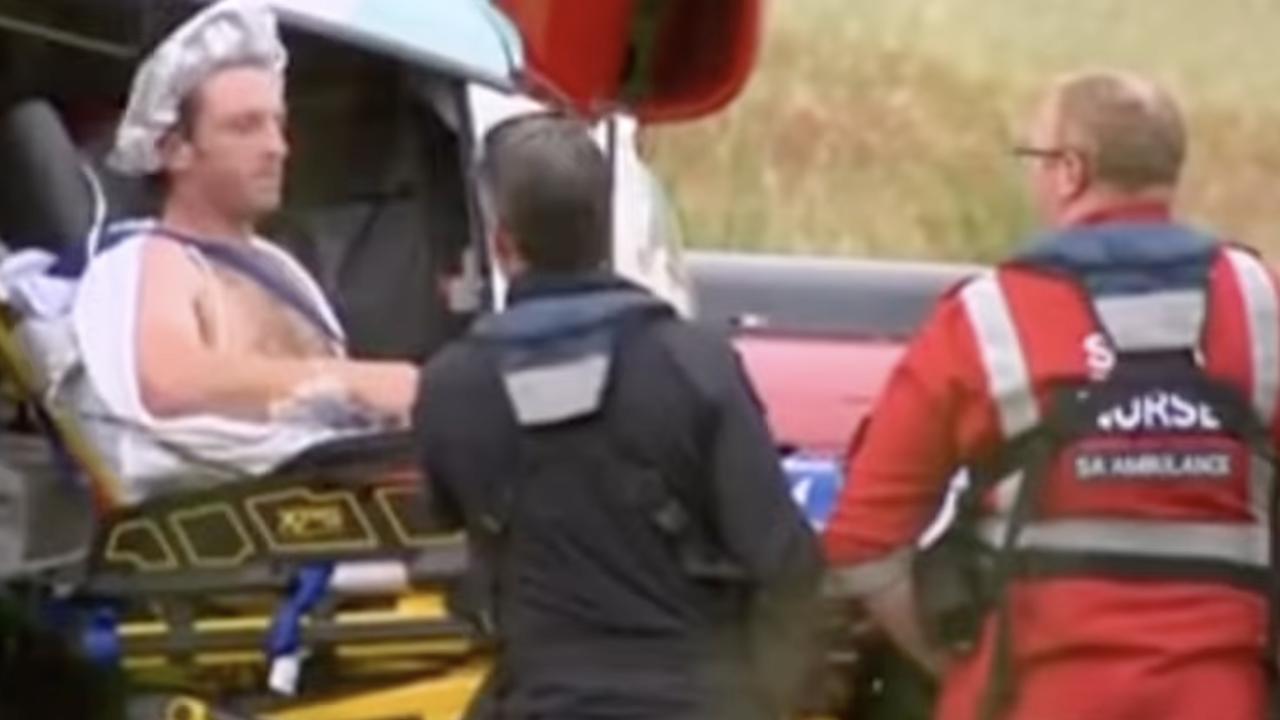Kiwi pilot held hostage by West Papua rebel group freed after 592 days in captivity
A New Zealand pilot taken hostage in Indonesia by a West Papua rebel group is finally heading home after 592 brutal days in captivity.
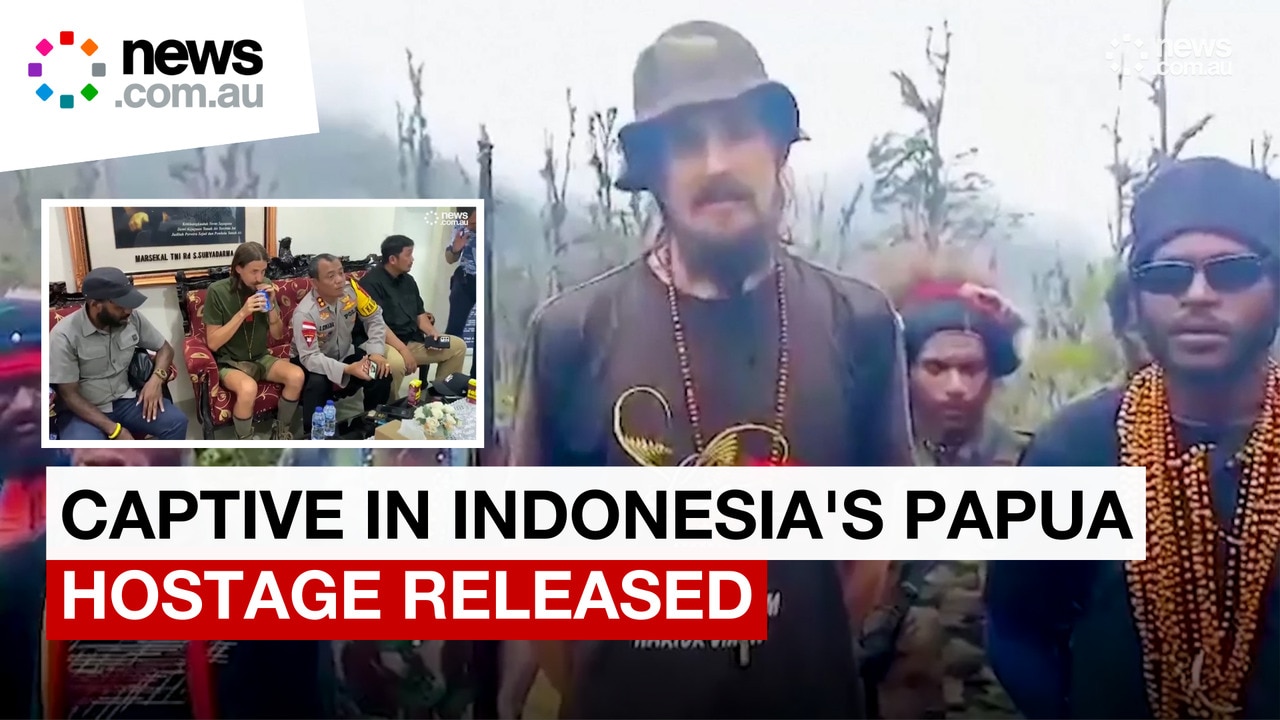
A New Zealand pilot who was taken hostage in Indonesia by a West Papua rebel group in February 2023 has finally been freed after spending 592 days in captivity.
Phillip Mehrtens was working for Indonesian airline Susi Air when he was kidnapped by rebels from the West Papua National Liberation Army (TPNPB) insurgent group at Papua’s Nduga airport on February 7, 2023.
The 38-year-old was collected by police and military forces from a village in Nduga district on Saturday before being given medical and psychological checks.
He was then flown to the Papuan city of Timika before jetting to the capital Jakarta where he was handed over to New Zealand’s ambassador.
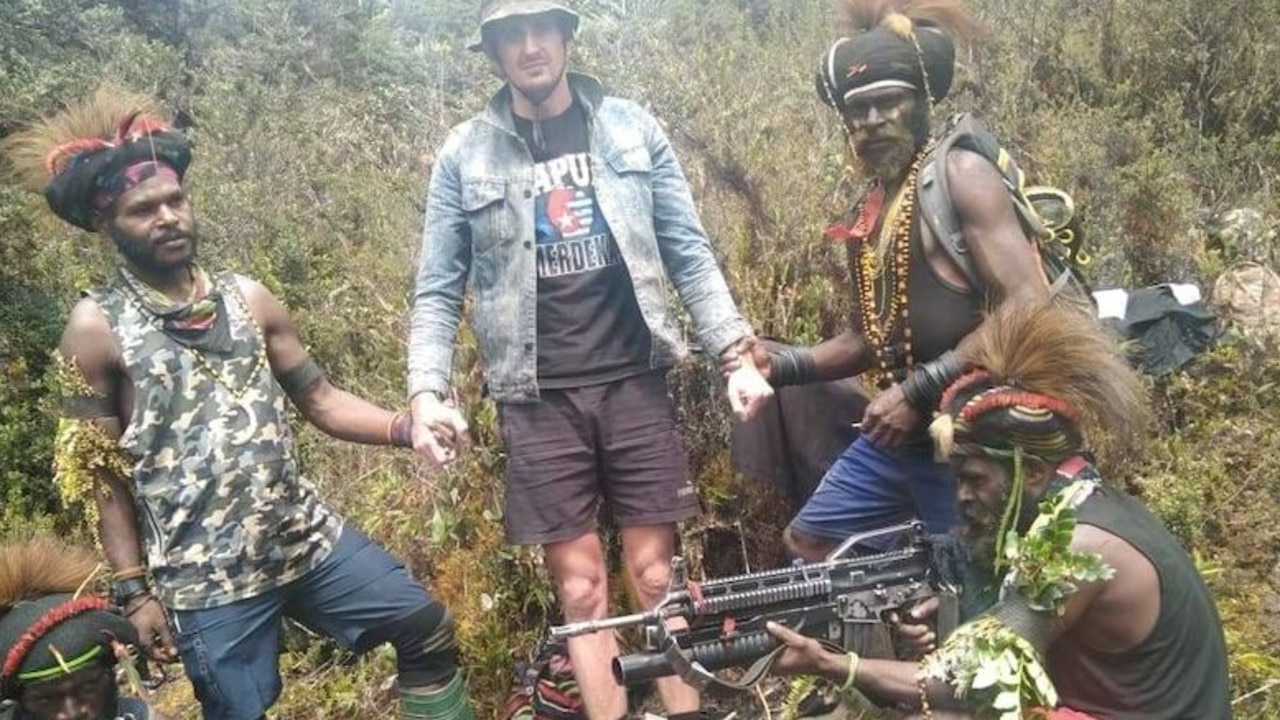
“Today I have been freed,” a thin-looking Mehrtens told reporters in Indonesian.
“I am very happy that shortly I will be able to go home and meet my family.
“Thank you to everybody who helped me today so I can get out safely in a healthy condition.”
New Zealand Foreign Minister Winston Peters earlier said Mehrtens was “safe and well” and had been able to speak with his family.
“This news must be an enormous relief for his friends and loved ones,” he added.
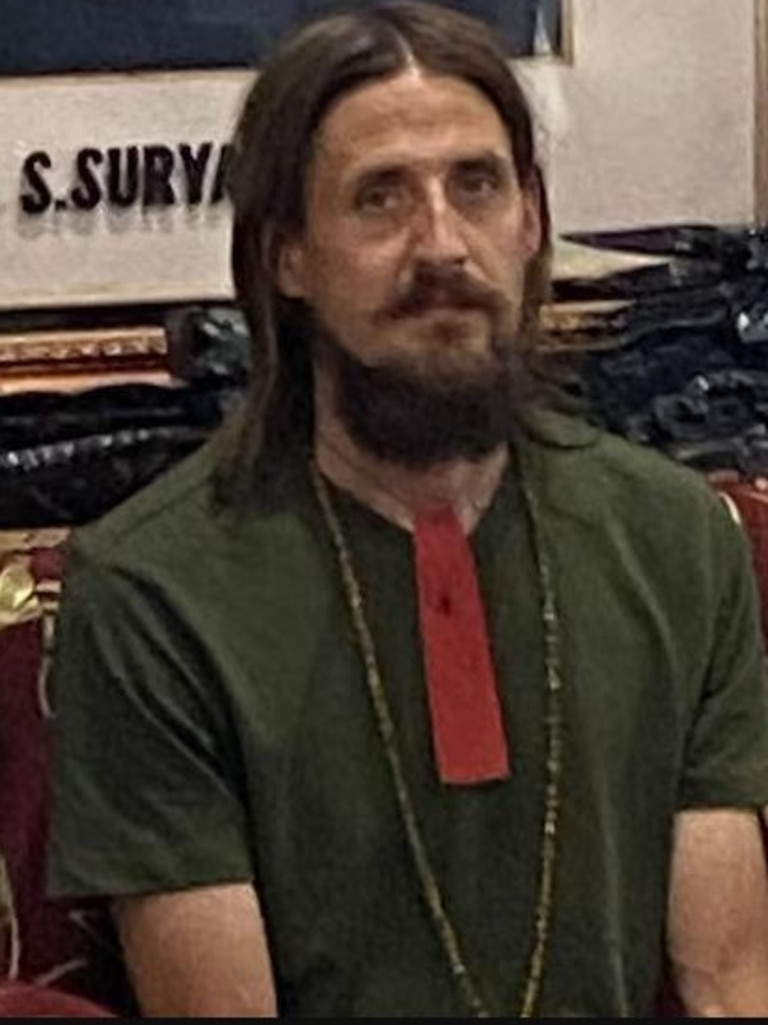
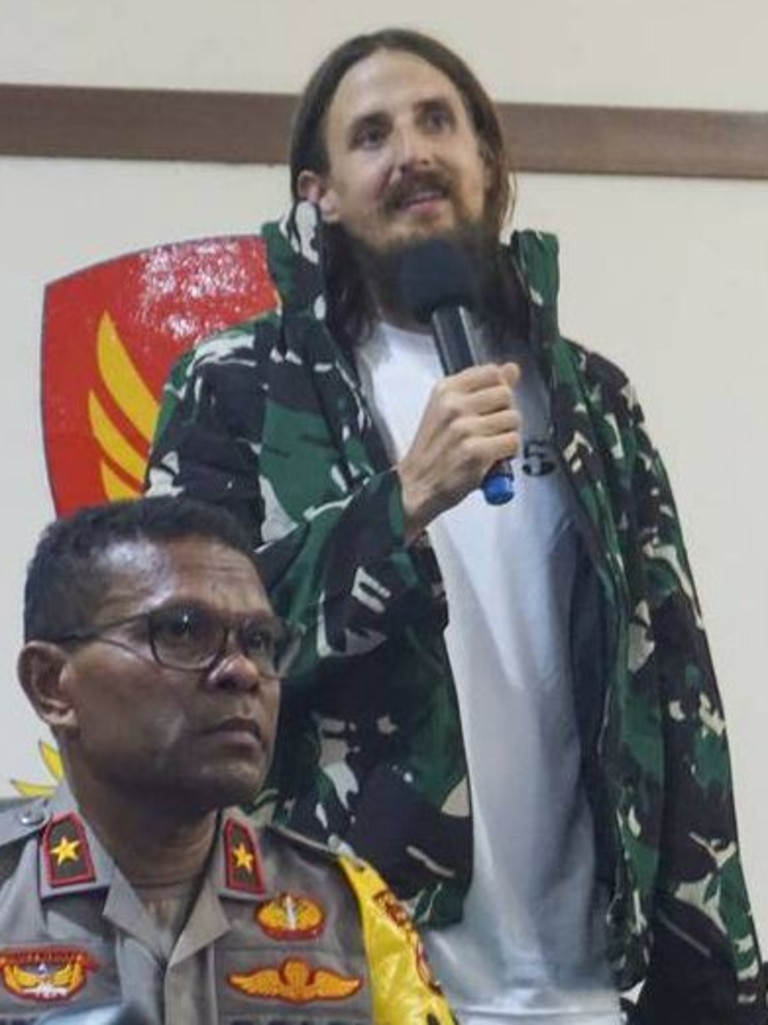
His long-anticipated release came after intense diplomatic efforts by Wellington and Jakarta.
Indonesian President Joko Widodo said on Saturday Jakarta had secured Mehrtens’ freedom through negotiation, not force.
“We prioritised the safety of the pilot who was held hostage. It took a long process and I appreciate the authorities,” he told reporters.
The rebels had demanded that the Indonesian government recognise Papuan independence in return for his freedom.
A TPNPB spokesman, Sebby Sambom, claimed another faction of the rebel group agreed to a deal with the Indonesian government, accusing them of accepting a payment without providing evidence.
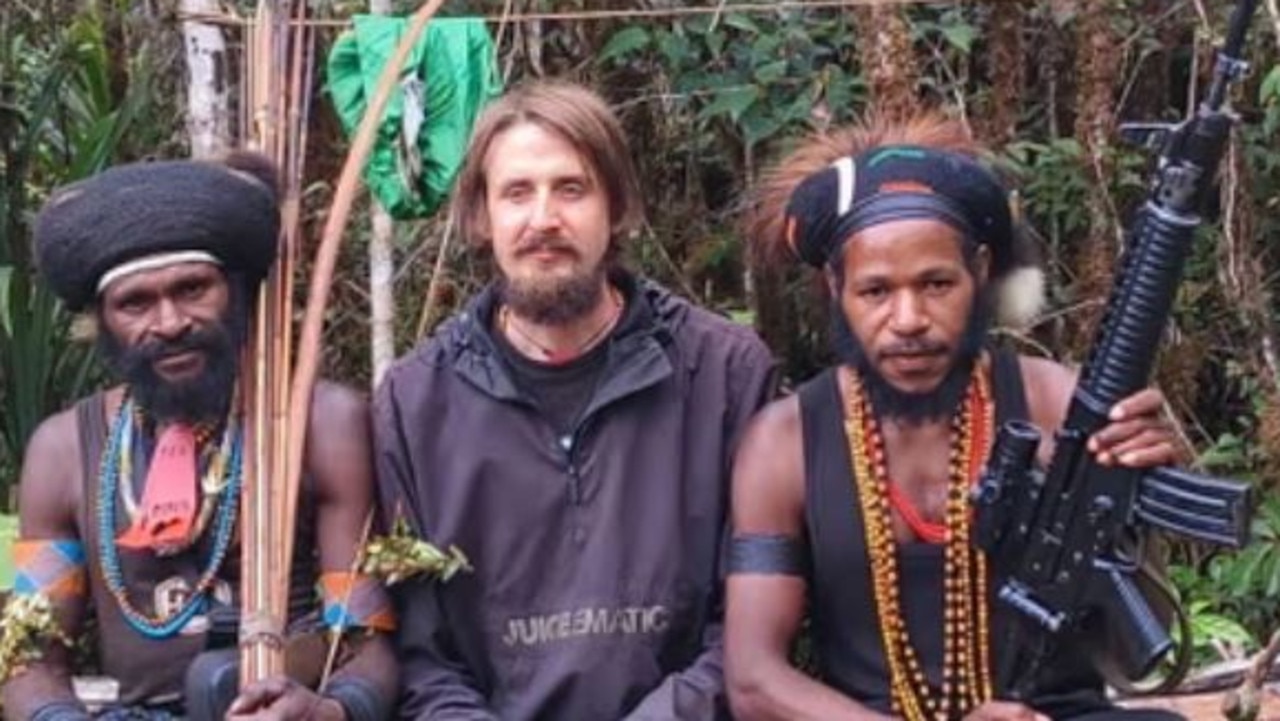
The group had threatened to kill Mehrtens at one point if talks were not forthcoming. The TPNPB said foreign nationals were targets as their governments had ties with Indonesia.
Footage of an emotional Mehrtens talking to his family was released by the task force, with one unidentified loved one heard saying “hang in there”.
During his captivity, the father made sporadic appearances on video, likely under duress, to address his family and government.
Although the rebels claimed he was “in good health” throughout his time in captivity, his appearance changed drastically.
He became gaunt, long-haired and bearded in proof-of-life videos released by the group.
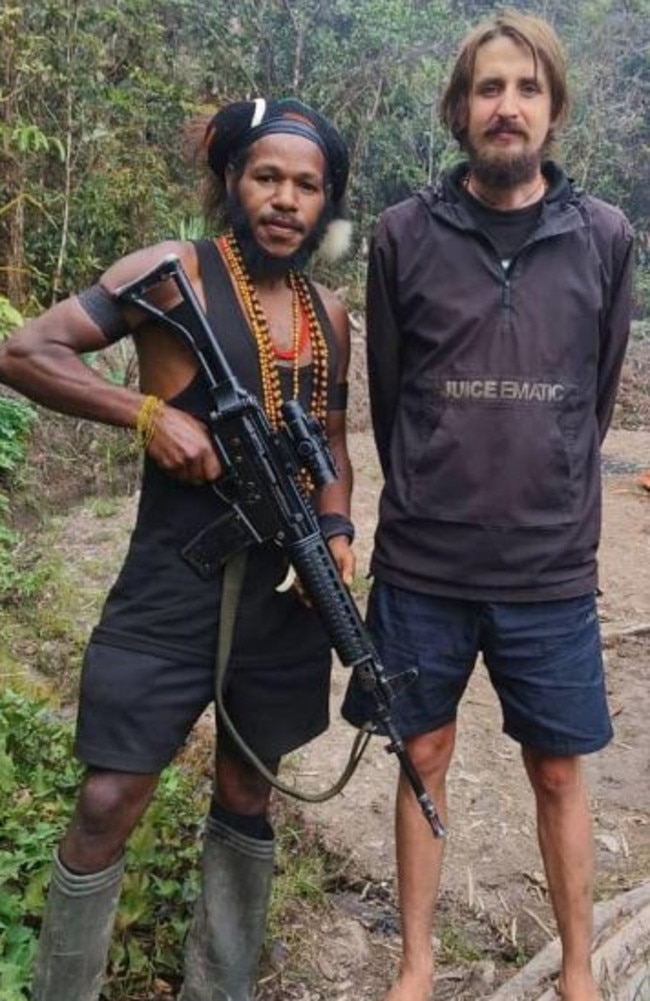
But Mehrtens appeared in good physical condition in hand-out images and videos published by Indonesian authorities on Saturday.
During his kidnapping, he was described as a “kind and gentle man” by friends. He had been working to help Papuans by flying into remote areas not accessible by road and which many would not fly to.
A heavy military presence is maintained in resource-rich but underdeveloped Papua to mitigate the long-running separatist insurgency.
The kidnapping was part of a long-term, often brutally violent conflict between the Indonesian government and West Papua’s Indigenous people.
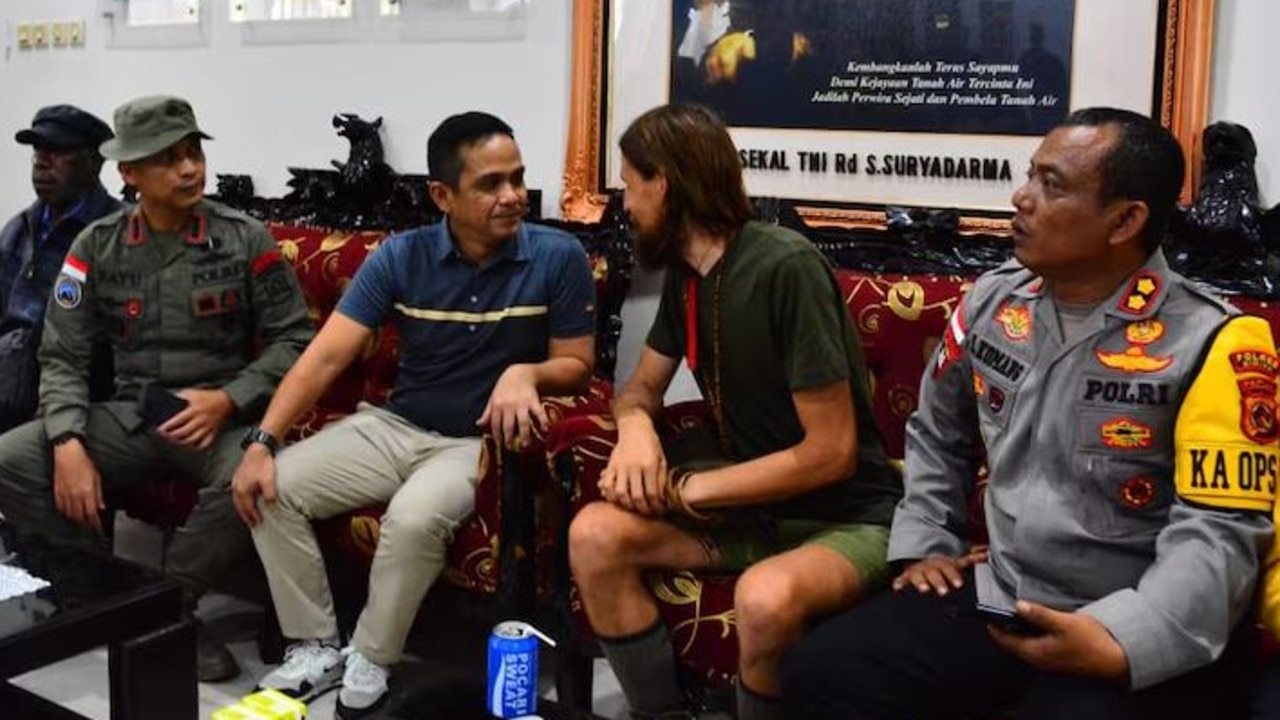
In April, at least one Indonesian soldier was killed in Papua after being ambushed by rebels while searching for the kidnapped Mehrtens.
Another New Zealand pilot, Glen Malcolm Coning, 50, was shot dead just last month after landing in the region with two Indonesian health workers and two children, all of whom survived.
The former Dutch colony became independent in 1961 but neighbouring Indonesia took control two years later, promising a referendum.
In 1969, a thousand Papuans voted to integrate into Indonesia in a UN-backed vote.
Papuan independence activists regularly criticise the vote and call for fresh polls, but Jakarta says its sovereignty over Papua is supported by the United Nations.




